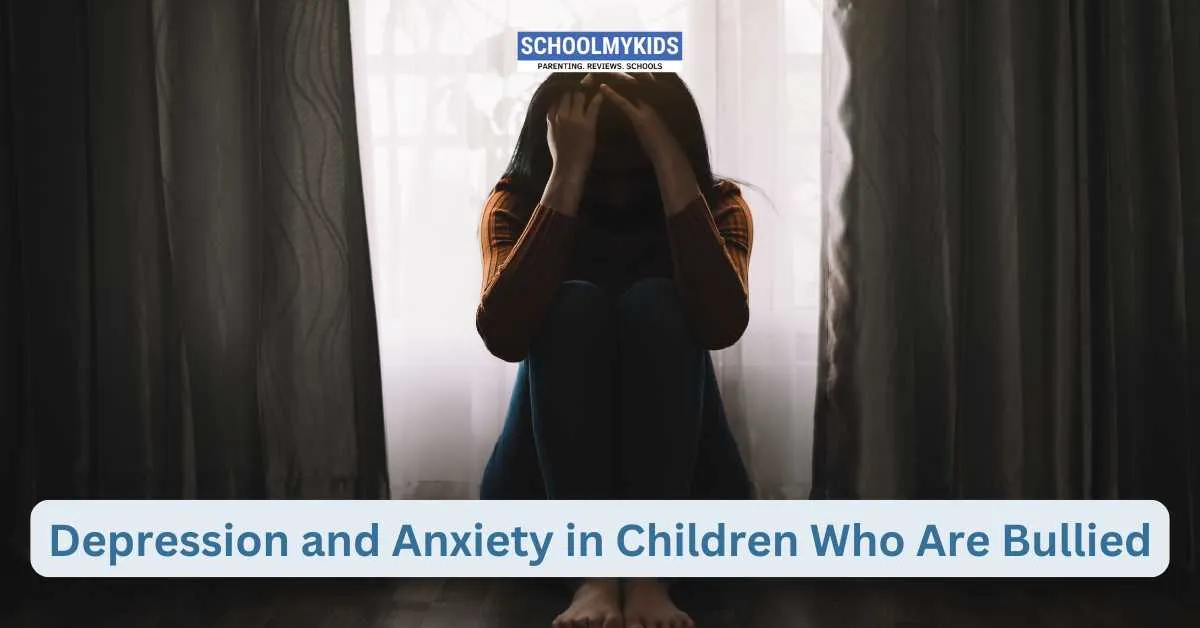Bullying is more than just hurtful words or physical aggression—it can leave deep emotional scars that lead to serious mental health issues. Among these, depression and anxiety are two of the most prevalent conditions affecting children who are bullied. Understanding the connection between bullying and these mental health challenges is crucial for parents, educators, and caregivers to provide effective support and intervention.
The Emotional Toll of Bullying
Children who are bullied often experience a cascade of negative emotions. Bullying, whether physical, verbal, or relational, disrupts a child's sense of safety and self-worth. Over time, the relentless pressure and humiliation can contribute to feelings of hopelessness and chronic sadness, key indicators of depression. Additionally, the constant threat of further victimization creates a state of heightened vigilance, leading to pervasive anxiety.
Depression in Bullied Children
Depression in children may manifest differently than in adults. Instead of the classic symptoms of deep sadness, children might show signs of irritability, academic decline, or withdrawal from activities they once enjoyed. Research indicates that bullied children are significantly more likely to exhibit symptoms of depression. A meta-analysis of studies has found that children who are repeatedly bullied can have depression rates two to three times higher than their non-bullied peers. These children may express feelings of worthlessness, experience a loss of interest in play or social interactions, and even show physical symptoms such as changes in appetite or sleep disturbances.
Anxiety in Bullied Children
Anxiety often goes hand in hand with depression in the context of bullying. Children subjected to bullying may develop generalized anxiety, characterized by persistent worry about everyday activities, or social anxiety, where the fear of judgment by peers becomes overwhelming. The unpredictable nature of bullying means that children may be on constant alert, fearing the next attack. This state of hypervigilance can interfere with their ability to concentrate in class, form healthy friendships, and participate in routine activities.
Recognizing the Signs
Early detection of depression and anxiety in bullied children is essential for effective intervention. Parents and educators should be vigilant for behavioral and emotional changes that might indicate underlying distress.
Behavioral Changes
- Withdrawal: A once-social child may start avoiding interactions with peers and family.
- Academic Decline: A noticeable drop in school performance or a lack of interest in homework and class activities.
- Irritability: Increased sensitivity or outbursts of anger can be signs of inner turmoil.
- Physical Complaints: Frequent headaches, stomachaches, or other unexplained physical symptoms can be manifestations of psychological stress.
Emotional Signs
- Persistent Sadness: Prolonged periods of sadness or a general lack of enthusiasm for life.
- Anxiety: Excessive worry about school, social interactions, or even leaving the house.
- Low Self-Esteem: A diminished sense of self-worth and a tendency to blame themselves for the bullying.
Social Indicators
- Isolation: A reluctance to join group activities or a withdrawal from previously enjoyed hobbies.
- Changes in Friendships: A shift in social dynamics, including the loss of old friends or difficulty making new ones.
Research Insights
Several studies underscore the severe impact of bullying on mental health. For instance, research published in the Journal of Child Psychology and Psychiatry has demonstrated that children who experience bullying are at a heightened risk for developing both depression and anxiety. Longitudinal studies reveal that the effects of bullying can persist into adolescence and adulthood, influencing not only mental health but also social and academic outcomes.
Moreover, neuroscientific research suggests that chronic stress from bullying can alter brain structures related to emotion regulation and stress response. The prefrontal cortex and amygdala, areas critical for managing fear and anxiety, may be particularly vulnerable. These biological changes can reinforce the cycle of anxiety and depression, making recovery more challenging without proper support.
Impact on Academic and Social Development
The mental health challenges arising from bullying have a far-reaching impact on a child's life. Academic performance often suffers as children struggle to concentrate, complete assignments, or even attend school regularly due to the overwhelming weight of their emotions. The social repercussions are equally significant—bullied children may develop trust issues, making it difficult for them to build and maintain healthy relationships. Over time, these challenges can lead to a sense of isolation and a reduced capacity for social interaction, which only deepens the feelings of depression and anxiety.
Strategies for Support and Intervention
For Parents
- Open Communication: Encourage regular conversations about school, friendships, and feelings. Create a safe space where your child can express their concerns without fear of judgment.
- Validation and Empathy: Acknowledge your child’s feelings and validate their experiences. Let them know that it’s okay to feel upset and that you are there to help.
- Professional Help: If symptoms of depression or anxiety persist, consider consulting a child psychologist or counselor. Professional support can provide targeted strategies to help your child cope and recover.
- Monitor Changes: Keep track of behavioral and emotional shifts. Maintaining a journal of events and symptoms can help in identifying patterns and triggers.
For Educators
- Foster an Inclusive Environment: Implement anti-bullying programs and promote a culture of respect and inclusion. Creating a supportive classroom environment can mitigate the effects of bullying.
- Early Intervention: Be proactive in addressing signs of bullying and related mental health issues. Early intervention can prevent the escalation of depression and anxiety.
- Collaboration with Parents: Work closely with parents to share observations and develop a consistent strategy for supporting the child both at home and in school.
- Counseling Services: Ensure that school counselors are available and approachable for students in need. Group sessions and one-on-one counseling can be valuable in helping children process their emotions.
Building Resilience
- Skill-Building: Teach children coping mechanisms such as mindfulness, deep breathing exercises, or journaling. These skills can help them manage stress and regulate their emotions.
- Encouraging Social Connections: Support your child in building positive friendships and engaging in group activities. A strong social support network can act as a buffer against the negative effects of bullying.
- Positive Reinforcement: Celebrate small achievements and reinforce positive behaviors. Encouraging self-confidence and a sense of accomplishment can gradually counteract the feelings of worthlessness associated with depression.
Moving Forward
Recovery from the emotional scars of bullying is a gradual process. It involves not only addressing the immediate symptoms of depression and anxiety but also creating a supportive framework that fosters long-term resilience and well-being. By recognizing the signs early and implementing comprehensive strategies that involve parents, educators, and mental health professionals, we can help children navigate these challenges and pave the way for a healthier, more hopeful future.
Conclusion
Depression and anxiety in children who are bullied represent a serious public health concern. The psychological impact of bullying extends far beyond temporary sadness, potentially leading to chronic mental health issues that can disrupt every aspect of a child’s life. By understanding the emotional toll of bullying, recognizing the signs of depression and anxiety, and taking proactive steps to provide support, we can help mitigate these harmful effects. Early intervention and consistent support are key to breaking the cycle of distress and helping children build the resilience they need to thrive academically, socially, and emotionally.








Be the first one to comment on this story.